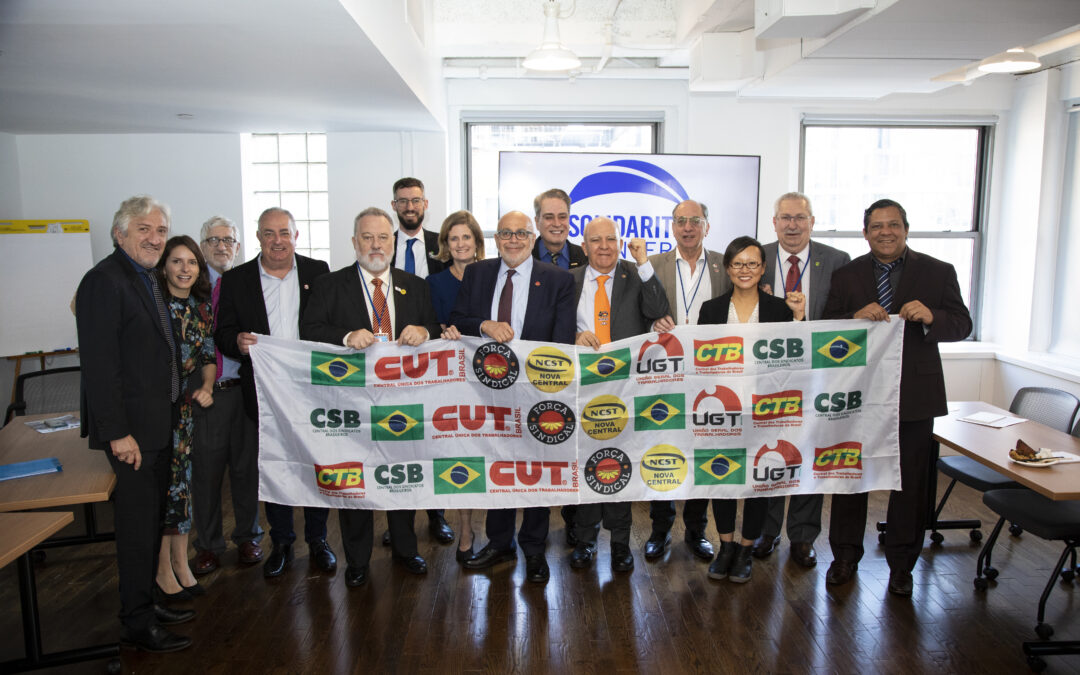As the United Nations met in New York this week, U.S. President Joe Biden and Brazil President Luiz Inácio Lula da Silva announced the launch of the U.S.-Brazil Partnership for Workers’ Rights. This joint commitment, if adequately resourced and executed with labor union participation, will put worker rights and decent jobs at the center of critical conversations including the transition to a clean energy economy, the role of emerging technologies, corporate accountability in supply chains, ending gender-based violence and harassment at work and other global priorities.
Calling the agreement a landmark, Solidarity Center Executive Director Shawna Bader-Blau said it “affirms respect for freedom of association and the right to collective bargaining and the essential role of democratic trade unions in advancing a just and vibrant global economy.”
All photos: Solidarity Center / Brian Offidani Photography unless otherwise indicated.
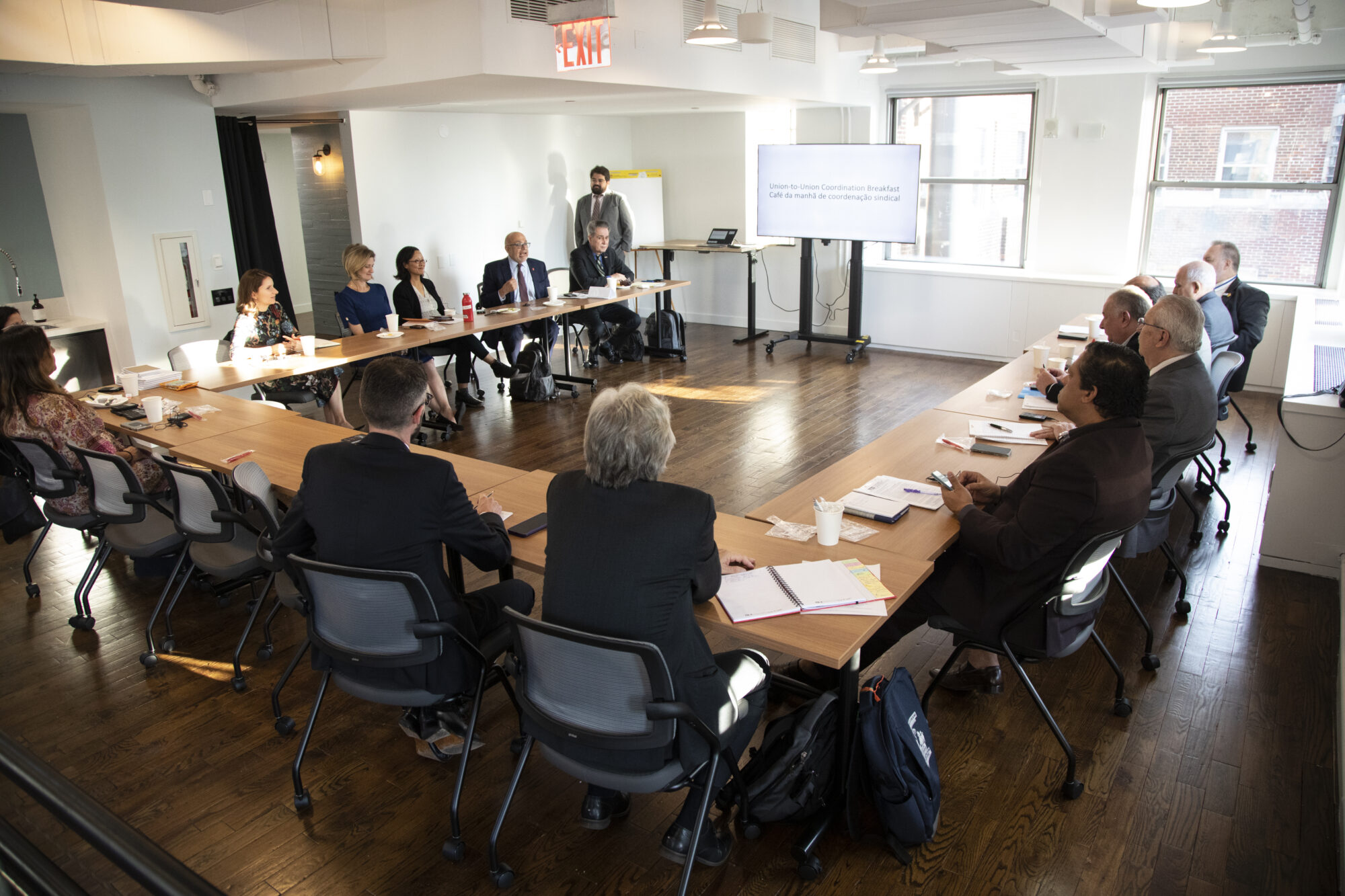
As the presidents of the United States and Brazil got set to announce the U.S.-Brazil Partnership for Workers’ Rights during the United Nations meeting in New York, U.S. union leaders discussed with their Brazilian counterparts their expectations for its implementation. U.S. labor leaders from the AFL-CIO, United Food and Commercial Workers (UFCW), Retail, Wholesale and Department Store Union (RWDSU) and United Steelworkers (USW) met with Brazilian leaders from Unitary Workers’ Central (CUT), General Workers’ Union (UGT), Union Force, Brazilian Unions’ Central (CSB), Brazil Workers’ Central (CTB) and the New Union Workers’ Central (NCST). Gustavo Garcia, Solidarity Center program officer, helped moderate the session.
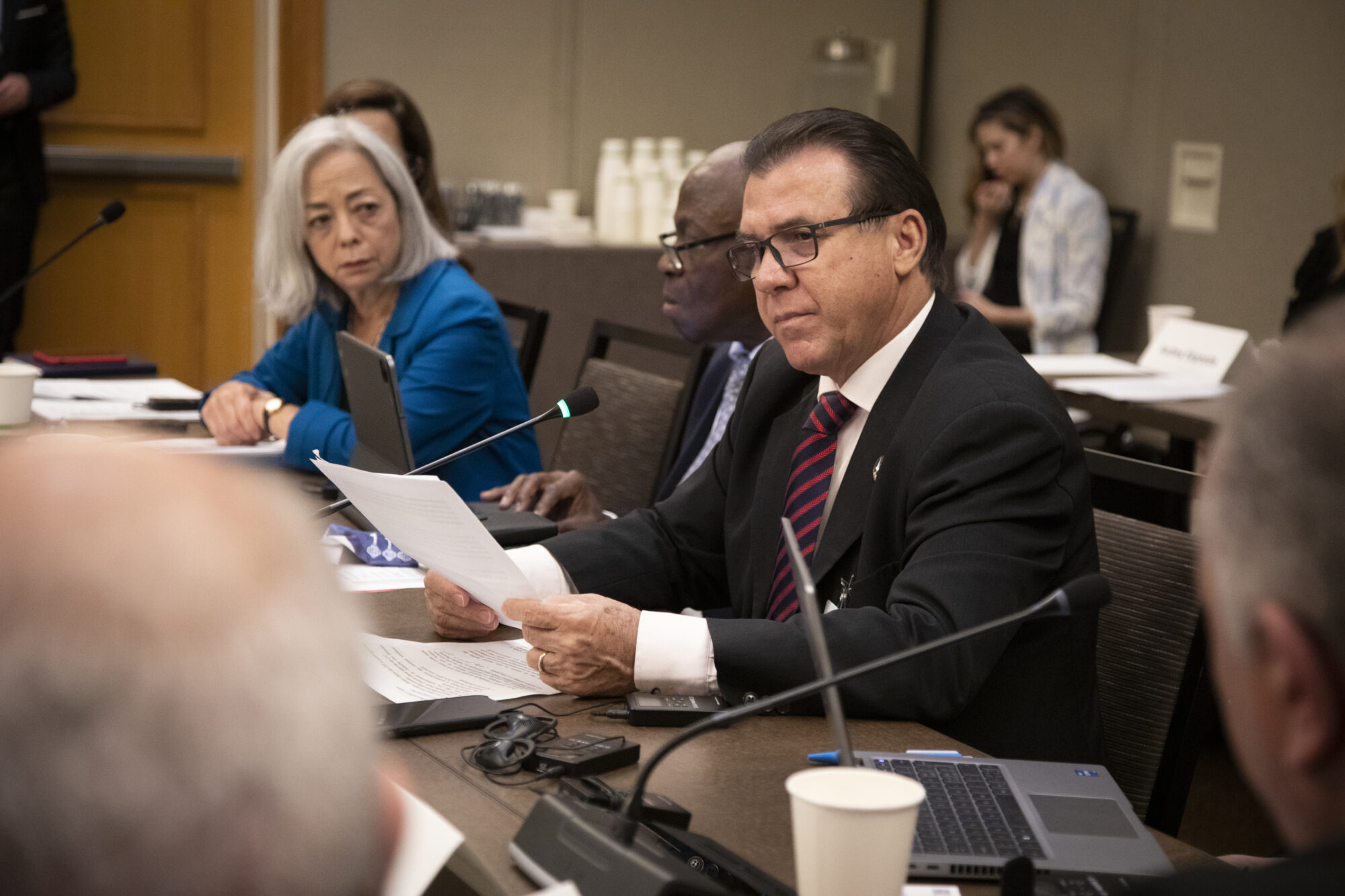
Luiz Marinho, Brazil’s minister of labor and employment and Thea Lee, U.S. Department of Labor’s deputy undersecretary for international affairs, addressed a meeting with U.S. and Brazilian union leaders, officials from the U.S. government and the International Labor Organization (ILO), and representatives from the business sector.
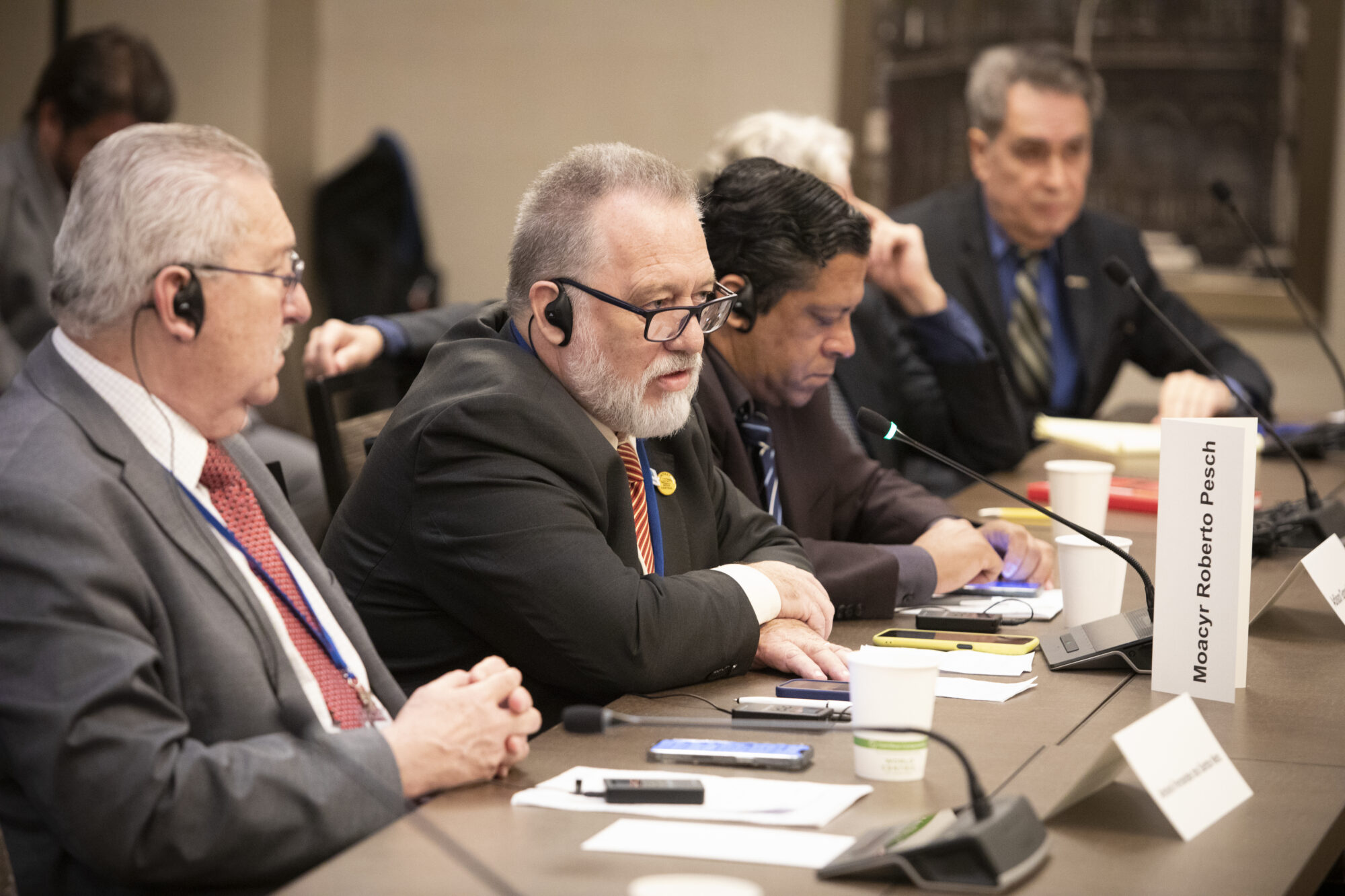
Moacyr Roberto Tesch Auersvald, NCST president, addressed representatives from the ILO and U.S. government meeting on the U.S.-Brazil Partnership for Workers’ Rights. To his right: Antonio Fernandes dos Santos Neto, CSB president and to his left, Adilson Gonçalves de Araújo, CTB national president.
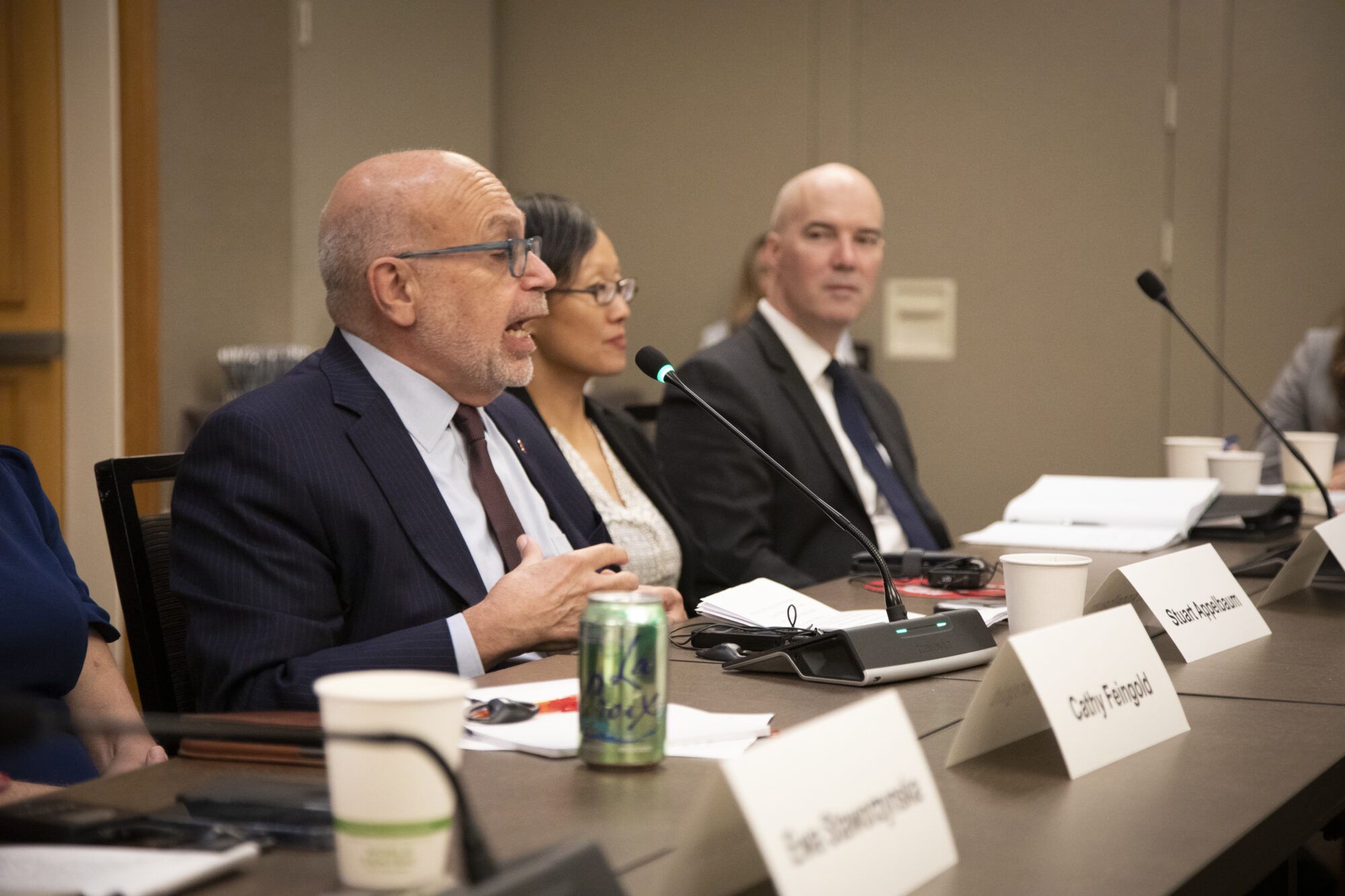
Stuart Appelbaum, UFCW executive vice president and RWDSU president, expressed support and solidarity to the Brazilian labor movement. He praised the U.S.-Brazil Partnership for Workers’ Rights and the efforts from all parties to make this initiative a reality.
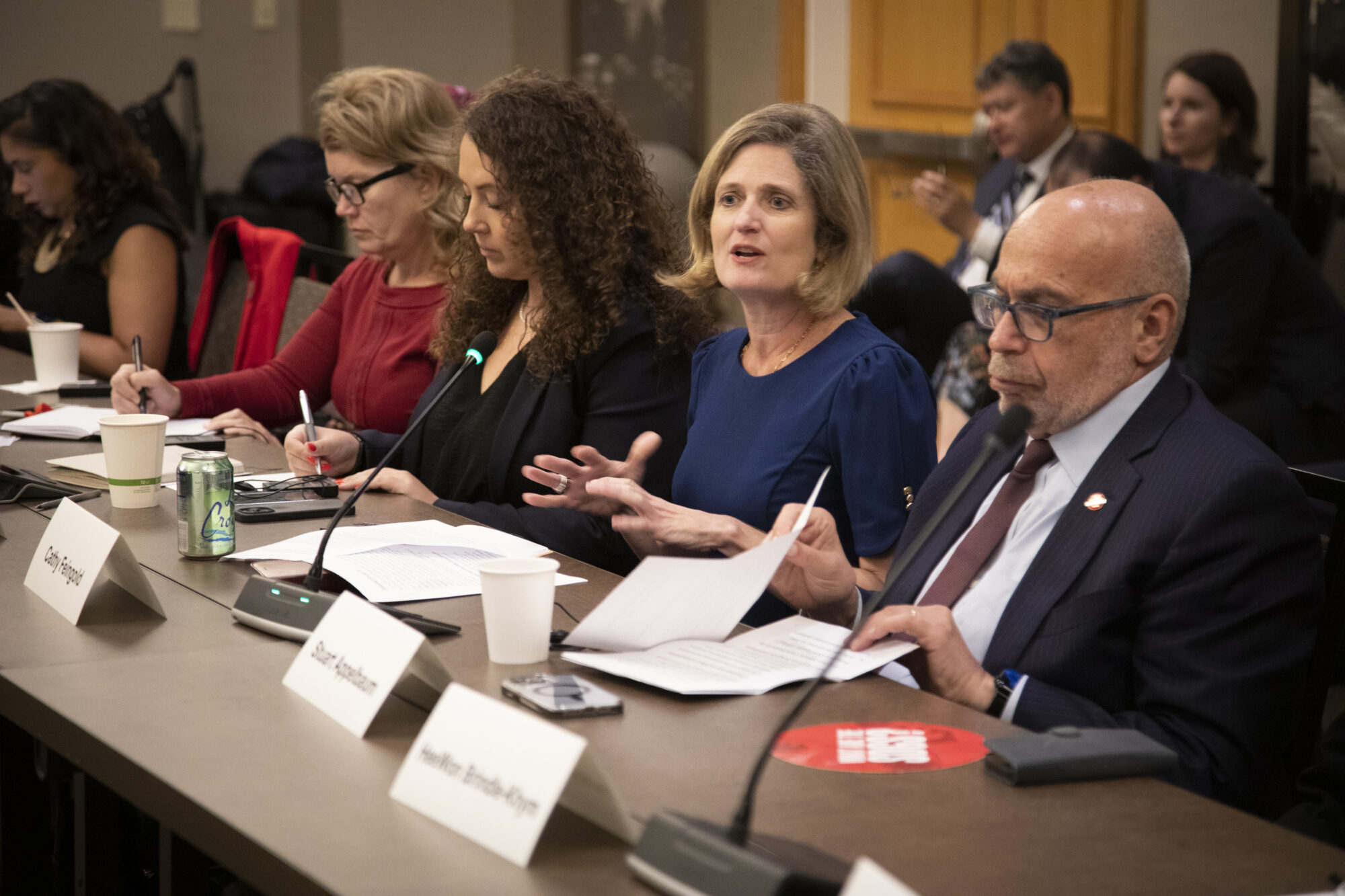
Cathy Feingold, AFL-CIO international affairs department director and International Trade Union Confederation (ITUC) deputy president, highlighted the importance of the initiative in protecting vulnerable workers, including platform workers in Brazil and the United States.
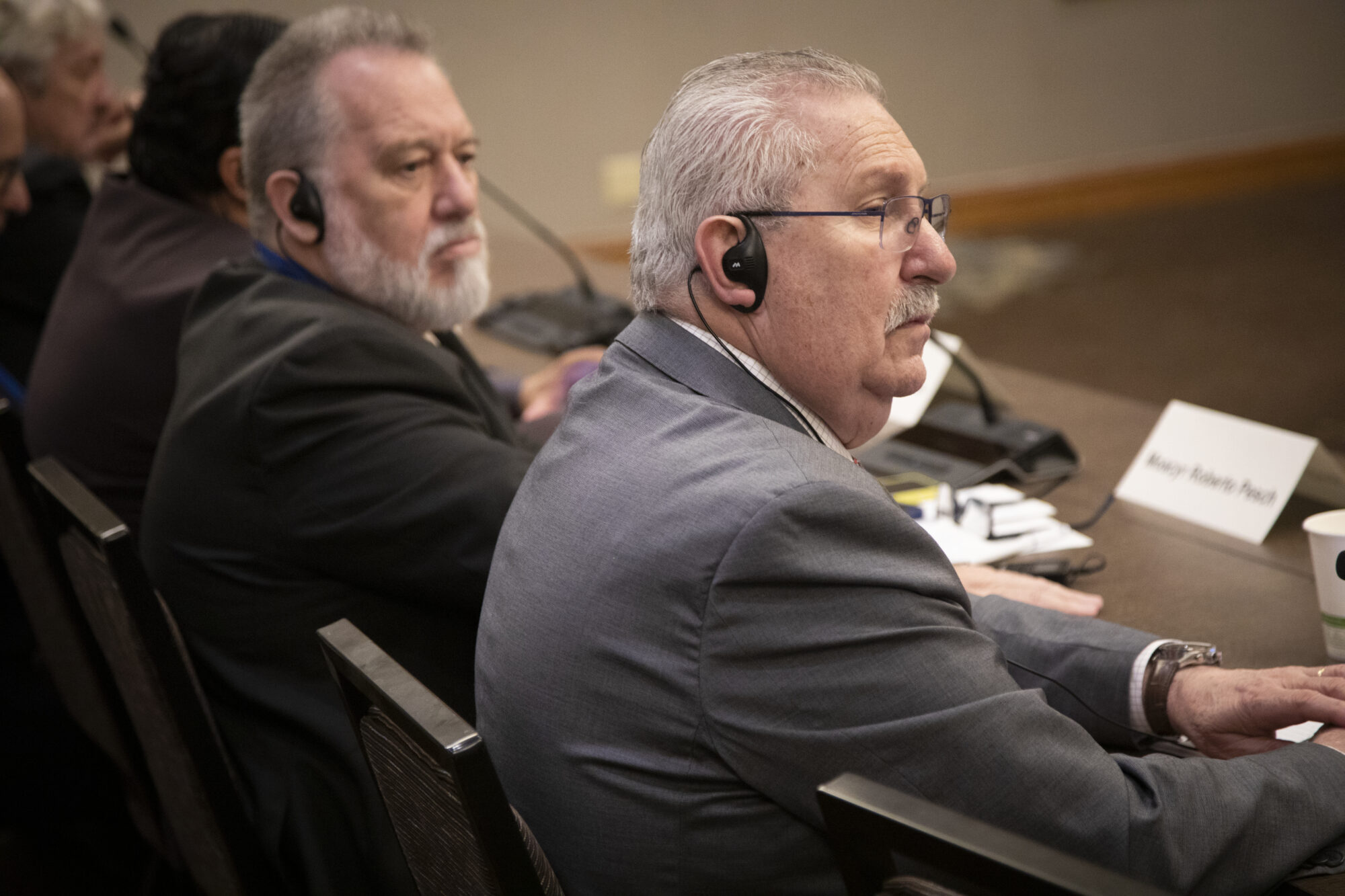
Antonio Fernandes dos Santos Neto, CSB president and Moacyr Roberto Tesch Auersvald, NCST president, praised both countries’ support and cooperation to advance labor rights. They described the U.S.-Brazil Partnership for Workers as a “historic moment.”
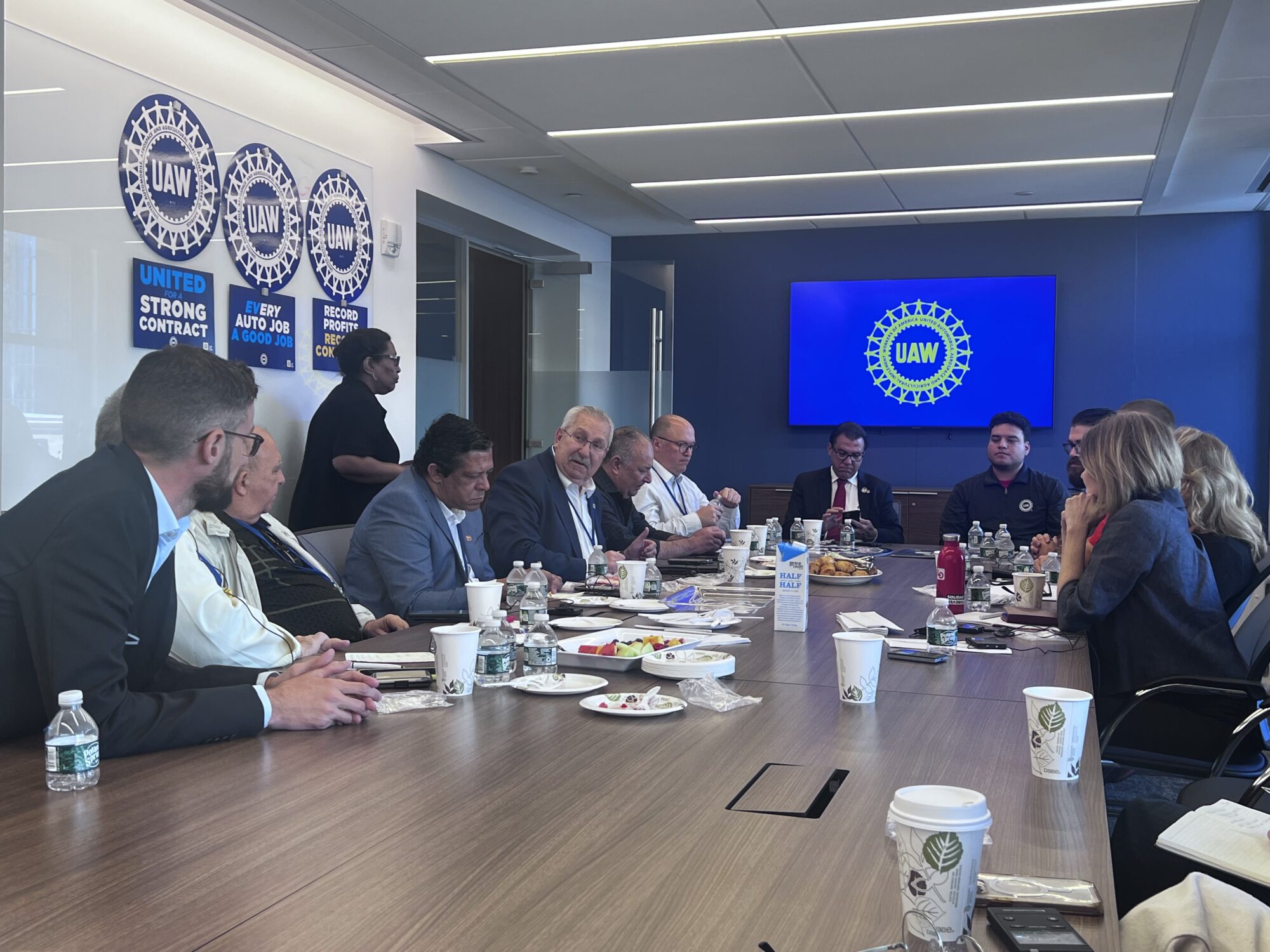
Members of the Brazilian labor delegation, AFL-CIO and Solidarity Center, along with Brazil Minister of Labor and Employment Luiz Marinho, visited the United Auto Workers Region 9A headquarters. President Biden stated earlier in the week: “Let me be clear, whether it’s the auto workers union or any other union worker, record corporation profits should mean record contracts for union workers.” All of Brazil’s trade union centrals have announced support for striking UAW workers. Credit: UAW
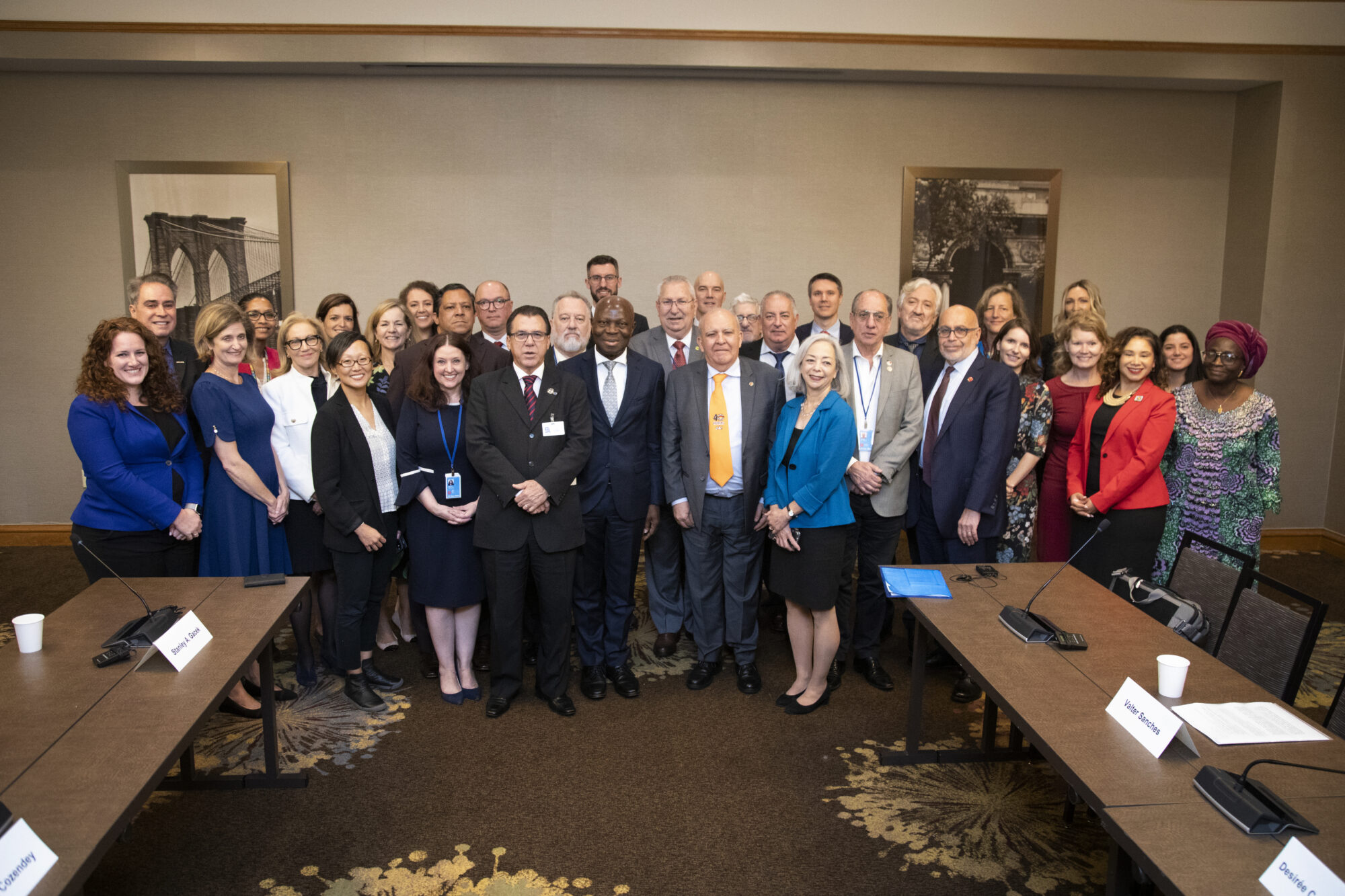
The ILO and the U.S. government organized a meeting with U.S. and Brazilian labor leaders and business sector representatives to discuss the impact of the U.S.-Brazil Partnership for Workers’ Rights. Joining them are Gonzalo Martinez de Vedia, Solidarity Center Brazil program director, and Lianet Rosado, Brazil program officer.

